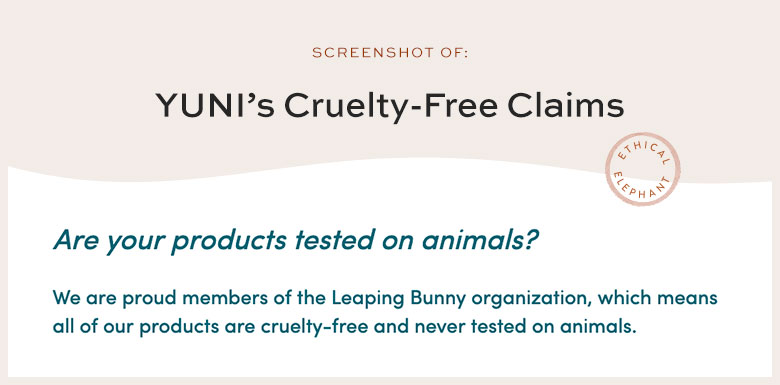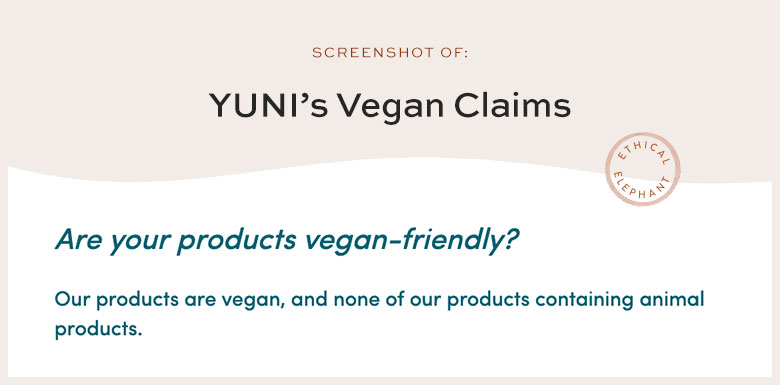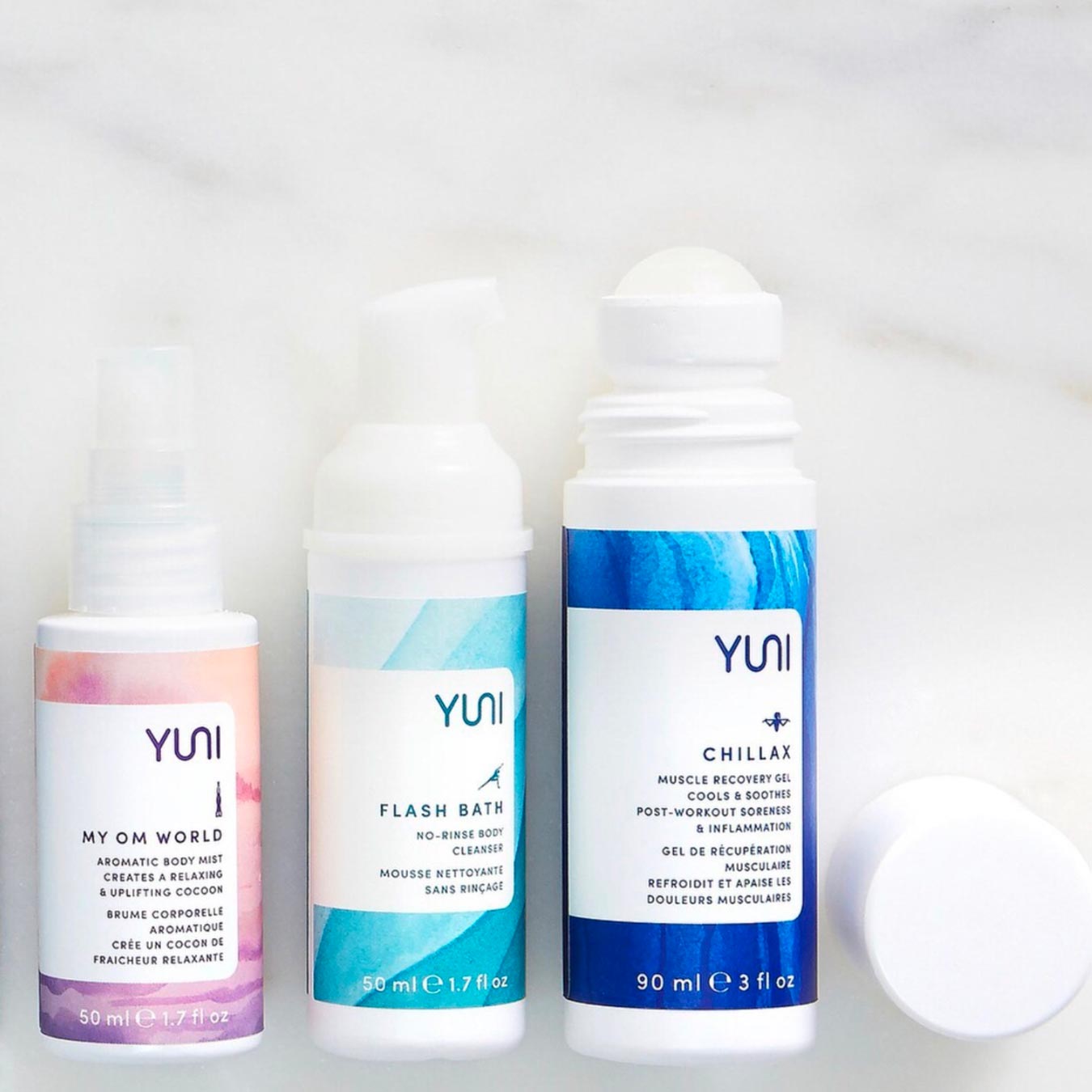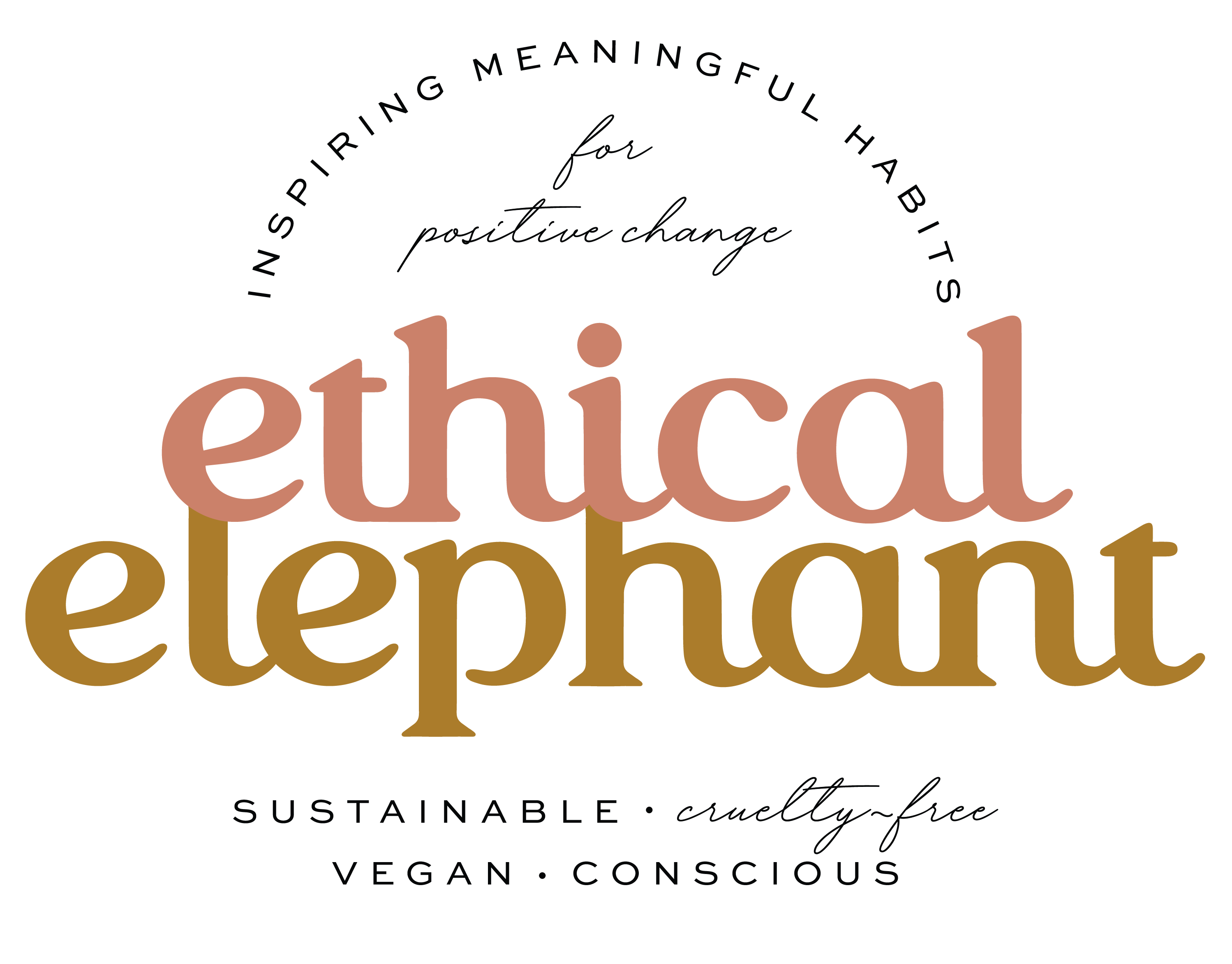This post may contain affiliate links that at no additional cost to you, I may earn a small commission.
You can find YUNI cruelty-free products at Ulta, The Detox Market, and Amazon.
YUNI is Cruelty-Free
YUNI has confirmed they do not test their products or ingredients on animals or ask others to test on their behalf. Their suppliers also do not test on animals, nor do they allow their products to be tested on animals when required by law. And finally, their products are not sold in stores in mainland China or any other country that may require animal testing.
By our standards, we would consider YUNI to be Cruelty-Free.
Below is a screenshot of what’s currently stated on YUNI’s website about its cruelty-free claims:

What About China’s Animal Testing Laws?
YUNI has confirmed they do not sell their products in retail stores in mainland China; therefore, they are not required to test on animals.
As of May 1, 2021, some imported ordinary cosmetics can be exempt from animal testing under certain conditions. However, for the most part, animal testing is still legally required for most imported cosmetics in 2022.
Cruelty-Free Policies
Note that there is no legal definition for the label ‘Cruelty-Free.’ It can mean different things to different people. But Cruelty-Free is generally used to imply no animal testing. More specifically, the ingredients, formulation, or finished product are not tested on animals at any stage of product development.
At ethical elephant, we always assess a company’s cruelty-free policy using our Cruelty-Free Checklist. This ensures no animal testing was performed by the brand itself, its suppliers, and by any third parties.
Also, note that Cruelty-Free and Vegan don’t always mean the same thing.
YUNI is 100% Vegan
YUNI has confirmed all of its products are vegan and don’t contain any animal-derived ingredients or by-products.
Below is a screenshot of what’s currently stated on YUNI’s website about its vegan claims:

Vegan Policies
Similar to ‘Cruelty-Free,’ there is no standard or legal definition for the label ‘Vegan.’ But it usually means no animal-derived ingredients or animal by-products.
Some common animal products used in cosmetics include carmine, lanolin, snail mucus, beeswax, honey, pearl or silk-derived ingredients, animal-based glycerin, keratin, and squalene.
There are plant-based and synthetic alternatives to animal-derived ingredients. But it’s sometimes difficult to know with certainty whether a product is vegan just by reading the ingredient list.
So it’s best to ask the company and manufacturers to ensure the ingredients they’ve chosen to use were from non-animal sources.
Ethical Mica Mining Policy
Mica is a mineral that’s used in cosmetics to add a shimmery effect. But the mining of natural mica has been linked to child labor and human rights violations.
Unless the company discloses its mica mining policy, we have no way of knowing whether its mica is ethically sourced without child or forced labor.
So I asked YUNI if their mica is ethically sourced without the use of child labor and they responded by stating,
“We have been aware of this situation for years (our co-founder is a woman from India) and from the very beginning, we decided to source ethically mined mica.
See below the statement of our unique supplier.
“We use mica from our wholly owned mine in Hartwell, Georgia (USA) to produce natural mica based effect pigments for the Coatings, Printing, Plastics and Cosmetics industries. We market this effect pigment range today under our global pigments brand Colors & Effects.”
I hope this article helped you to understand YUNI’s cruelty-free and vegan status and by choosing cruelty-free together, we can help end animal testing for cosmetics once and for all!







